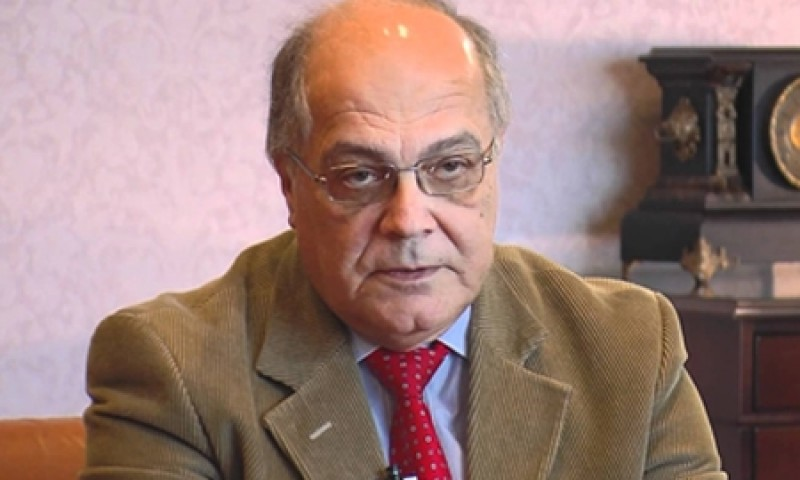BREAKING: Trouble hits Maltese banks as US banks shut down business with them/Prime Minister in NYC for ‘rescue’ meetings
The Prime Minister left Malta for New York last Sunday, cancelling long-planned meetings and participation in events in Malta and London, to travel to New York with Finance Minister Edward Scicluna, Malta Financial Services Authority chairman Joe Bannister, and the Central Bank of Malta’s deputy governor, Sandro Demarco.
They are there to meet US banks, in a last-ditch attempt at persuading them to set up, re-open or retain correspondent banking relationships with Malta’s banks.
Over the last year, American banks have been systematically shutting down their correspondent banking business with banks in Malta. JP Morgan and Wells Fargo shut down their relationships with Maltese banks in the last year. Though HSBC Bank Malta has the advantage of being able to go through HSBC Global, the Bank of Valletta, which has to build and manage its banking relationships independently out of Malta, has been reduced to just the one US correspondent bank.
Correspondent banks in other jurisdictions are essential for the making and receiving of payments. Without correspondent banks in the United States, Maltese banks cannot process US-related and dollar-based transactions.
“It is very strange that the Prime Minister of a country would turn up at US banks to try to persuade them not to shut down their relationship with commercial banks in that country,” one financial services and banking specialist told this website. “Commercial banks in the United States or anywhere else are not going to be influenced by what a Prime Minister says. The fact that Muscat has gone on this funny trip is nothing short of weird, particularly given that it is his government which has caused the problem in the first place through its choices which have caused such great reputational damage to Malta.”
The same source said: “This problem has been coming for a while now, but nobody’s wanted to talk about, still less to the media, because any such story which is published and gets picked up might make the situation even worse than it is already. So what was an elephant in the room some months ago is now a mammoth. The simple fact of the matter is that Malta is facing a reputational crisis, and this is the natural and obvious consequence of that. US banks would rather shut down their business with Maltese banks than take that kind of risk. On balance, they would rather lose their business with Malta than run the risk of being colossally penalised back home for getting themselves involved, inadvertently or otherwise, in something shady or questionable here. American correspondent banks are crucial to Maltese banks, but Maltese banks are relatively unimportant to US banks.”
Malta’s reputational decline could not have come at a worse time, the source said, because it occurred as banks the world over increased their regulatory scrutiny in the fight against money-laundering, crime-corruption-generated funds and terrorism funding.
“What happened is that in 2013 Malta began to attract the kind of business it had refused until then,” he said. “Before that, Malta in general, and not just the financial services sector, had a good image, a serious one. Then there was a conglomeration of scandals which exposed how certain decisions are being taken that are far from correct or transparent, that there is the very real possibility of corruption right at the top which has been deliberately spread throughout the system.
“And then came the Panama Papers explosion, to which the Prime Minister’s response was far from satisfactory – suggesting that he could even be involved himself, but confirming that he is certainly protecting his key minister and his chief of staff.
“Add to that the fact that regulatory institutions and policing and administrative authorities have been deliberately weakened and undermined, and you have the perfect recipe for serious reputational damage that has now become acute. People in Malta imagine, and it looks like the members of the government are among them, that none of this is reported or registered outside Malta by the organisations and companies who are concerned about their own reputational safety. That is naïve in the extreme.”
Anti-money-laundering regulations dictate that risk assessments are carried out over an entire jurisdiction and not just one aspect of it. “So obviously, what this means is that Malta has gone from low/moderate risk to high risk, otherwise this would not have happened,” the source said. “We are on the verge of a situation in which US banks stop dealing with Malta altogether. This would bring about a very great systematic problem not just in Maltese banks but throughout the Maltese economy, because Malta-based businesses will be unable to process payments to and from the US.
“The correspondent banking issue is the most serious problem right now. All the other problems, the scandals, have led to this. It is an immediate problem that has to be tackled, though it seems to me difficult if not impossible at this stage, because otherwise there is going to be a cascading effect on the economy.”

Joe Bannister, chairman of the Malta Financial Services Authority, is now in New York with the Prime Minister, the Finance Minister and the Central Bank’s deputy governor, in an attempt at persuading US banks to act as correspondents for Maltese banks. Bannister was appointed chairman of the Malta Financial Services Authority in 1999, by John Dalli who was then Finance Minister. He is still in that post almost two decades later.
